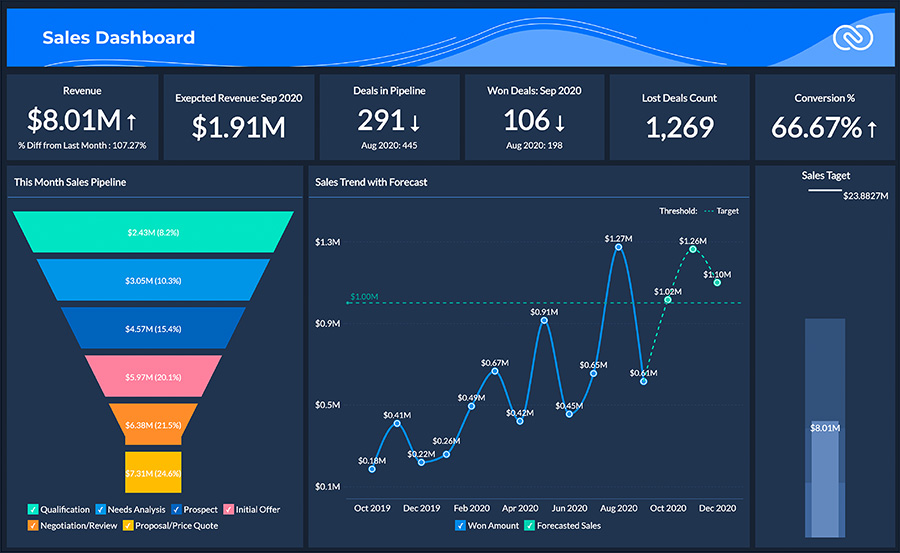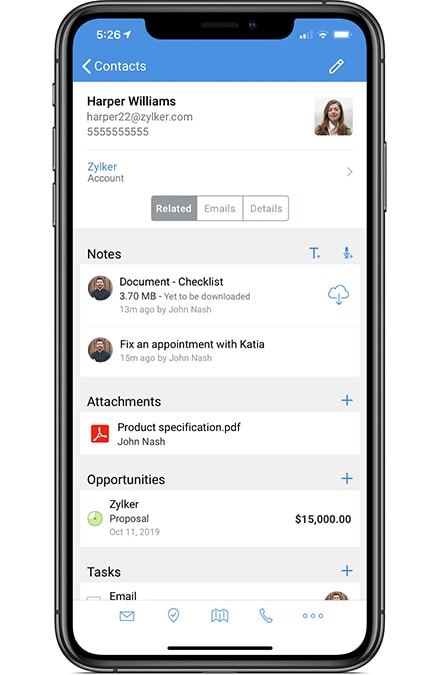Why do we need CDPs?
Businesses today are filled to the brim with customer data: demographic, behavioral, and transactional data—all from seemingly infinite data sources. Add it all up, and you’ve got a range of data from online ad clicks to offline transactions, all the way to social media interactions and customer helpdesk tickets.Typically, this data is stored in silos, making it difficult for companies to provide consistent customer experiences across the full range of customer touchpoints. CDPs help you aggregate data from these various silos and act as a single source of truth.
CDP : Definition
CDPs are a type of software which acts as a central repository for all your customer data. A CDP integrates and collects key customer data from your existing data sources—such as your marketing tools, helpdesk software, email, live chat, and social media—and organizes them in one place.
Advantages of a CDP
Avoid data silos:
By unifying your customer data across customer-facing teams, you can be confident that your data is accurate and accessible by all.
Data harmonization:
Duplicate and inconsistent data is eliminated as multiple online and offline sources are combined to create a unified single customer view.
Data segmentation:
You can segment customers according to their RFM behavior and deliver a personalized, omnichannel experience throughout the entire customer lifecycle.
Predictive intelligence:
You can enrich your customer profiles with predictive data (probability of purchase, product recommendations, etc).
Unified omnichannel campaigns:
Businesses run typically multiple omnichannel marketing campaigns at any given time. CDPs can unify marketing efforts across multiple channels by integrating them under one platform.
CRM vs CDPWhich one should you choose?
Whereas CDPs serve to combine data sources into a unified view of your customers so that your siloed customer-facing teams can perform accurate data analysis, segment customers, and make data-driven decisions which turn customers into brand advocates, customer relationship management (CRM) applications are primarily designed to help sales teams generate and organize leads, track them through the sales funnel, and make smarter business decisions based on predictive analytics and reports.
Though CRMs traditionally acted just as contact and account management systems, today there's plenty of overlap between CRMs and CDPs, as CRMs have evolved into an end-to-end customer experience software platform that handles the needs of not just sales, but marketing and support teams, too.
What should you look for in a CDP?
Comprehensive customer view
Does the platform provide a holistic view across all data sources (email interactions, social media activity, purchase and transactional data, campaign metrics and help desk data)?
Personalized customer journey
Does the platform enable personalization of your customer journey across different customer touchpoints?
Security and compliance features
Does the platform ensure transparency and security when dealing with your customer data? Is it compliant with GDPR?
Attributes and segmentation
Does the platform allow you to segment and slice through your customer data based on their attributes?
Multiple third-party integrations
Does the platform integrate with marketing automation tools, survey tools, and data sources where you generate your customer data?
Business intelligence
Does the platform enable you to make data-driven decisions by allowing you to analyze your huge collection of customer data?
Why should you choose Zoho CRM?
Zoho CRM has been in the enterprise software industry for over 13 years, and it's grown to become the preferred choice of sales teams around the globe. Millions of sales people across all major industries and verticals trust Zoho CRM to help them close more deals in less time.
Customer data unification with
a 360-degree customer view
Connect with your customers through multiple channels. Enable your customer-facing teams to have contextual, meaningful conversations by gathering and storing a comprehensive range of data from customer profiles, live chats, surveys, emails, website behaviors, marketing campaigns, and customer support data.

Predictive analytics with Zia
Predict the outcome of sales activities, detect anomalies, and get macro suggestions to automate mundane tasks from Zoho CRM's powerful predictive analytics. Enable your team leaders and executives to forecast how customers might respond to changing products, timelines, or campaigns, and to develop sophisticated strategies.

Here are leading oraganizations which trust Zoho CRM
to manage their businesses
Personalized journeys
Zoho CommandCenter is built to work with Zoho's suite of solutions closely, utilizing Zoho CRM's advanced features to help personalize your customers' journeys. Build complex journeys and iterate them based on different scenarios, user actions, or traits. Build automated workflows to reduce the need for manual intervention.

Privacy and security
Zoho CRM is fully equipped for GDPR compliance as a data processor. Across data collection, storage, and processing, Zoho CRM offers many options designed to meet the security and privacy standards set in GDPR. Apart from this, Zoho CRM uses one of the strongest and most robust methods—AES—to encrypt and decrypt your sensitive data.

Fully equipped BI platform
Zoho CRM's Ultimate Edition includes Zoho Analytics, a modern self-service BI and analytics platform which turns raw data into insightful reports and dashboards. Track your key business metrics, view longtime trends, identify outliers, and predict the future.

Zoho CRM mobile
With Zoho's mobile CRM apps, your sales team can keep in touch with their leads, log and access important prospect information, keep track of their KPIs, and make data-driven decisions—all while on the move. Help your sales reps and managers stay in control by giving them access to your sales analytics dashboards with a dedicated analytics mobile app.

Frequently Asked Questions
Customer data platforms collect and unify data from multiple sources. This includes behavioral, transactional, customer profile, marketing campaign, and demographic data.
Today's customers expect truly personalized service anywhere and everywhere. To provide an exceptional customer experience, it's crucial that your customer-facing teams (sales, marketing, and support) have access to up-to-date, well-organized, easily-accessible customer data—and a customer data platform makes it possible.
CDPs help businesses eliminate silos by unifying customer data across all customer touchpoints. By providing accurate, up-to-date customer data, CDPs help customer-facing teams create and maintain customer profiles that can help sales teams build better relationships, marketing teams to run better campaigns, and support teams to provide higher-quality service.
Disclaimer: Although Zoho CRM does not offer a CDP (Customer Data Platform) out of the box, the functionality can be replicated by integrating Zoho CRM with its broader ecosystem of applications.








